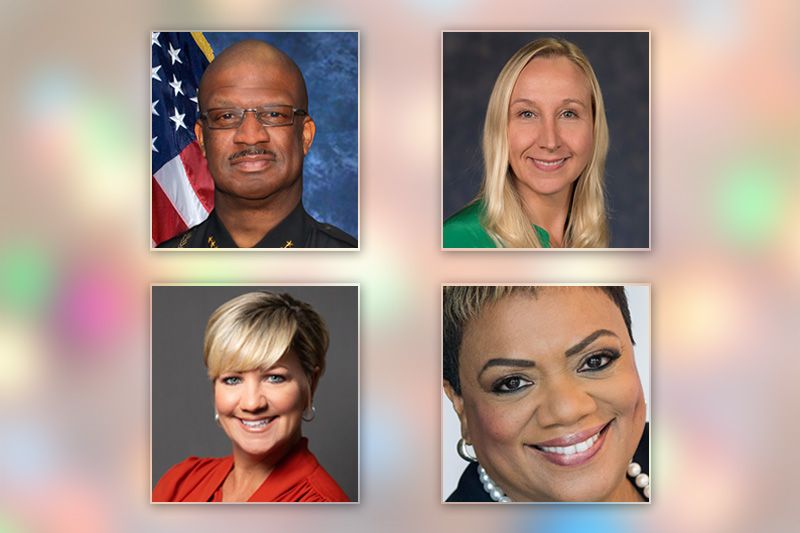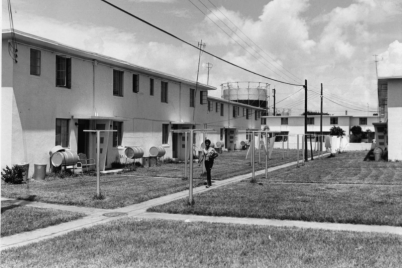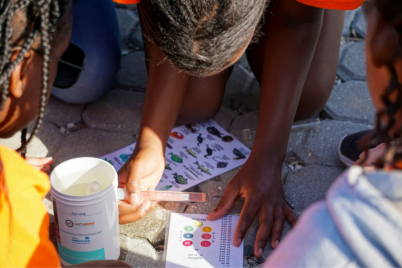SPPD Police Chief Anthony Holloway; SPPD Special Projects Manager Megan McGee, MPA; JFCS Chief Operating Officer Terri Balliet, M.A and Sandra Braham, Ed. D, president & CEO of Gulf Coast JFCS
BY DEIRDRE O’LEARY, Staff writer
ST. PETERSBURG – Last month, the St. Petersburg Police Department held another community conversation to highlight the Community Assistance Life Liaison (CALL) pilot program’s progress. The event was held virtually with Carl Lavender, chief equity officer, Foundation for a Healthy St. Petersburg, serving as moderator.
The city approved $850,000 last fall to fund the program in which social workers assist the police department with noncriminal calls. Development of CALL was awarded to Gulf Coast Jewish Family & Community Services, which has operated social work programs in Pinellas County since 1960.
The CALL model is designed to provide a behavioral health response to some mental health and poverty issues rather than criminalizing them. Police Chief Anthony Holloway led the presentation by saying they could not arrest their way out of problems.
By implementing CALL, Holloway hopes to reduce the number of overall arrests. The social workers, or navigators, are embedded with the PATH team, or police who work with the homeless, in this first phase. He stated there is a nurse practitioner at St Anthony’s Hospital assigned that handles police referrals of the homeless population, so they don’t have to go to the emergency room.
CALL will respond to intoxication, drug overdose, mental health crisis, suicide intervention, truancy, homeless complaints and neighborhood disputes. Special Projects Manager Megan McGee, MPA, from the St. Petersburg Police Department, stated that the worsening economy would likely result in more of this type of calls.
Repeat calls without resolution have also been problematic. Since 2016, there were 953 repeat Baker Act calls. By providing appropriate mental health services, the police hope to reduce these calls.
The City of Largo has had success with its Mental Health Navigator program. Of the top 20 “utilizers of mental health-related police response,” the program resulted in an 81 percent reduction in calls for service and a 65 percent reduction in Baker Acts.
Once CALL is fully staffed, it will be operational 14 hours a day, seven days a week. Gulf Coast JFCS is still hiring for navigator positions. They are looking to hire within the community.
In Phase 1, which began in early February, CALL navigators are embedded with police assisting the homeless. This will last between six to eight months. During Phase 2, navigators will take more responsibility, and finally, in Phase 3, workers will respond directly.
After six months, the program expects 80 percent of calls to be handled by navigators without police assistance. At the end of the trial year, they expect a 50 percent reduction in mental health calls, substance abuse and other related issues.
JFCS Chief Operating Officer Terri Balliet, M.A., spoke of the extensive training the navigators receive, including sensitivity and trauma, which will reduce the risk of harm. She also stated they always respond in teams.
Balliet stressed that there would be follow-up to ensure people are connected to the appropriate service providers, as JFCS will not provide all the services needed. The typical involvement in a case will be 30 days.
Community activist Ashley Greene asked how the program will be expanded after the pilot phase. For example, biking at night without a bike light is usually met with two police officers. In response, Sandra Braham, Ed. D, president & CEO of Gulf Coast JFCS, clarified what the CALL program is not. They will not handle people violating ordinances.
Ordinances are laws, and CALL is only concerned with noncriminal situations. Presumably, any other changes in police policy would have to be managed with a different program, if at all.
The participants welcome community input and questions; please direct them to Terri.Balliet@gcfcs.org or Megan.McGee@stpete.org.








